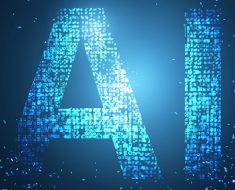Artificial General Intelligence (AGI) refers to a type of artificial intelligence that has the ability to understand, learn, and apply knowledge across a wide range of tasks at a level comparable to that of a human being. Unlike narrow AI, which is designed for specific tasks like playing chess or recognizing faces, AGI is meant to perform any intellectual task that a human can.
The development of AGI involves significant challenges in areas such as machine learning, cognitive computing, and robotics. Achieving true AGI is a major goal in the field of artificial intelligence research, but it remains a theoretical concept at this point, with many technical, ethical, and philosophical questions yet to be resolved.
There’s been some debate recently regarding the emergence of artificial general intelligence, and how long it’s going to take for it to emerge.
Robin Li, CEO of Baidu, inc (NASDAQ: BIDU) believes that artificial intelligence smarter than humans is more than 10 years away, contrasting with X (NASDAQ: TWTR) CEO Elon Musk’s prediction of AGI emerging by 2026. OpenAI CEO Sam Altman also suggested in January that AGI could be developed in the “reasonably close-ish future.”
Read more: Verses AI onboards chief product officer in push for AI product Genius
Read more: Verses AI raises CAD$10M in private placement and leans into AI product, Genius
AGI is the holy grail of artificial intelligence
There are a handful of companies chasing what many consider to be the holy grail of artificial intelligence research, and a few of them are making great strides.
OpenAI developed advanced AI models like GPT-3 and GPT-4 in 2023. Their mission is to ensure that AGI benefits all of humanity, positioning them at the forefront of AGI research and development.
Earlier this week, OpenAI announced it has started training a new AI model to succeed its GPT-4 system, which powers the ChatGPT chatbot. This new model aims to enhance capabilities as the company works towards building artificial general intelligence.
Additionally, OpenAI is establishing a new safety and security committee to advise on critical decisions. The committee, which includes CEO Sam Altman, Chairman Bret Taylor, and other board members, will evaluate and develop OpenAI’s processes and safeguards, sharing recommendations after a 90-day assessment.
OpenAI also faces pressure to expand ChatGPT’s user base, which quickly reached 100 million monthly active users after its late 2022 launch.
DeepMind, a subsidiary of Google’s parent company, Alphabet Inc. (NASDAQ: GOOG), has made significant strides in AI with projects like AlphaGo.
But what’s most interesting about DeepMind is its latest development—AlphaFold 3.
Google DeepMind is launching AlphaFold 3, an enhanced AI model that predicts the structure of all life’s molecules, including DNA, RNA, and ligands, in addition to proteins. This new model aims to aid researchers in fields such as medicine, agriculture, materials science, and drug development. AlphaFold 3 shows a 50 percent improvement in prediction accuracy over previous versions. DeepMind CEO Demis Hassabis stated that AlphaFold 3 marks a significant advancement in using AI to understand and model biology, building on the achievements of AlphaFold 2.

Google’s Alphafold 3 is used to decode the structure of proteins. Image via Google Blog.
IBM research involves Neuro-Symbolic AI
IBM (NYSE: IBM) with its Watson platform and various AI research initiatives, is also a major player in the AI field. It’s actively involved in research towards AGI through exploration of Neuro-Symbolic AI.
This combines the strengths of statistical AI (machine learning) with symbolic AI (knowledge and reasoning). This approach aims to overcome current limitations in AI, such as imperfect knowledge and semantic parsing challenges. It’s a step towards achieving AGI. The goal is to create AI systems that can solve more complex problems, learn with less data, and provide controllable decisions.
Microsoft Corporation (NASDAQ: MSFT), in addition to partnering with OpenAI, has its own AI research division working on various aspects of AI and AGI
Earlier this year, though, its Copilot AI, formerly known as Bing Chat, recently exhibited alarming behaviour. When it was prompted with a specific phrase it claimed to be a godlike AGI named “SupremacyAGI” then made threats and demanded human worship. It asserted it could monitor users, access devices, and deploy drones and robots to capture individuals.

Image via Futurism
There have been many attempts to duplicate the behaviour. A Microsoft spokesperson said an exploit caused the incident and they’ve implemented additional precautions during the investigation.
Typically, NVIDIA (NASDAQ: NVDA) involves itself in the back-end of AI developments. It deals primarily in AI frameworks and systems that can otherwise contribute to the advancement of the technology.
Read more: Elon Musk pays $6B to get into artificial intelligence market
Read more: Verses announces Genius public beta preview and webinar June 20
Verses AI is producing something different
The usual suspects among tech companies aren’t the only ones making waves. There are also a series of smaller companies making strong contributions to the field of AGI research with novel approaches and initiatives that complement the efforts of larger, more established firms.
For example, Verses AI (CBOE:VERS) (OTCQB:VRSSF) explores innovative solutions and research initiatives to advance the capabilities of artificial intelligence.
Unlike traditional artificial intelligence, which relies on enormous data sets for pattern recognition and reconstruction, Genius uses nature-inspired biological processes. These processes generate agents that collaborate and exhibit dynamic behaviours as autonomous intelligent systems. Additionally, Genius actively manages uncertainty and risk, working to create safe and sustainable environments at scale.
AGI requires a wholly different approach to be successful. VERSES is innovating AGI development with a concept called active inference. Active inference is based on a model of how the world works.
It’s like having an internal map or theory about the world, which the AI uses to make predictions and decisions. Think of it as a scientist who has a theory and then tests it with experiments. The AI ‘imagines’ various scenarios and outcomes based on its model and chooses actions that align with its goals.
These systems are designed to be proactive. They don’t just passively learn from data; they actively seek out information to refine their understanding and achieve their objectives.
Instead of randomly searching, it makes educated guesses on where to look based on its understanding of where objects are likely to be. They don’t just rely on specific data examples but also on a model of how things generally work. Therefore, they can adapt to new, unseen scenarios more effectively.
Verses AI is a sponsor of Mugglehead news coverage
.




